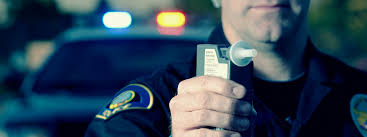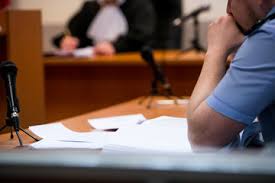
Driving under the influence (DUI) is a serious offense in California, carrying severe penalties, including fines, license suspension, and even imprisonment. One of the most common pieces of evidence used by the Orange County District Attorney to secure a DUI conviction is the result of a breathalyzer test. This test measures the blood alcohol concentration (BAC) and is often regarded as a conclusive sign of impairment. However, breath test results are not infallible and can be challenged in court by a skilled Fullerton DUI attorney. Understanding the potential grounds for disputing these results may significantly impact the outcome of a DUI case.
Understanding DUI Breath Tests
In California, it is illegal to operate a vehicle with a BAC of 0.08% or higher for drivers over 21 years old. The legal limit drops to 0.04% for commercial vehicle drivers and 0.01% for drivers under 21. Breathalyzer tests are commonly administered at the roadside by law enforcement officers to determine if a driver’s BAC exceeds these legal limits.
The breathalyzer test involves the driver blowing into a device that measures the amount of alcohol in their breath. This measurement is then converted to an approximate BAC level. Despite their widespread use, several factors can influence the accuracy of these tests, making them a potential point of contention in court.
Potential Inaccuracies of Breath Test Results

Calibration and Maintenance Issues
Breathalyzer devices require regular maintenance and calibration to ensure accuracy. A poorly calibrated or improperly maintained breathalyzer can yield inaccurate results. Fullerton DUI lawyers often scrutinize the maintenance logs and calibration records of the device used during the arrest. If the device was not properly calibrated or maintained, the results could be deemed unreliable.
External Factors
Various external factors can also affect breath test results. For instance, certain chemicals and compounds, such as acetone, can be present in a person’s breath and may lead to false positives. Medical conditions like diabetes or strict low carbohydrate diets can increase acetone levels in the body. Additionally, residual alcohol in the mouth from recent drinking, breath sprays, or mouthwashes can falsely elevate BAC readings. Environmental factors such as the presence of paint fumes or certain aerosols can also interfere with the breath test.
Officer Training and Protocol Compliance
The validity of breath test results also hinges on the officer’s adherence to standardized testing procedures. Officers must be properly trained to administer the test and follow specific protocols to ensure accuracy. Any deviation from these procedures, such as failing to observe the subject for 15 minutes prior to the test to ensure no contamination, can be grounds for your Fullerton DUI attorney to challenge the results. Cross-examination of the officer by a skilled DUI lawyer regarding their training and adherence to proper protocols can reveal such discrepancies.
Machine Operation Flaws
Breathalyzers are machines, and like all machines, they are not immune to malfunction. Operational issues, software errors, or even simple user error can lead to faulty readings. Fullerton DUI attorneys may seek expert testimony from a forensic toxicologist or other professionals who can speak to the reliability of the machine used. Demonstrating that the breathalyzer was not functioning correctly at the time of the test can help undermine the prosecution’s case.
Scientific Challenges to Breath Tests
Absorption and Elimination Rates
Alcohol absorption and elimination vary significantly between individuals based on factors like weight, gender, metabolism, and food intake. It typically takes time for alcohol to be fully absorbed into the bloodstream, during which BAC levels can fluctuate. This variability can be used to argue that the breath test results did not accurately reflect the driver’s BAC at the time of driving.
Partition Ratios
Breathalyzers rely on a fixed “partition ratio” (usually 2100:1) to convert breath alcohol concentration to blood alcohol concentration. This ratio can vary from person to person and even within the same individual over time. If a person’s actual partition ratio differs from the assumed ratio, the breathalyzer’s BAC reading may not be accurate. If your Fullerton DUI lawyer raises these scientific limitations it can cast doubt on the reliability of the test results.
Rising BAC Defense
A rising BAC defense argues that the driver’s BAC was below the legal limit while driving but increased by the time the breathalyzer test was administered. This can happen if the driver consumed alcohol shortly before driving and was then stopped shortly after. Since it takes time for alcohol to be absorbed into the bloodstream, the BAC reading at the time of the test may be higher than it was when the person was actually driving. If your Fullerton DUI attorney presents evidence of recent alcohol consumption it can support this defense.
Legal Strategies for Challenging Breath Test Results

Discovery and Evidence Review
Effective defense against breath test results requires meticulous review of all available evidence, including police reports, breathalyzer maintenance records, calibration logs, and body cam footage. This review can uncover procedural errors, improper equipment handling, or inconsistencies in the officer’s account.
Expert Witness Testimony
Your DUI lawyer may have an expert witness explain the scientific principles behind breathalyzer tests and potential inaccuracies can be crucial. An expert can testify about the factors affecting BAC measurements, machine reliability, and the prevalence of false positives. This testimony can help the jury or judge understand the complexities involved and raise reasonable doubt.
Suppression Motions

Challenging the admissibility of breath test results through suppression motions is another effective tactic commonly used by DUI lawyers. If your Fullerton DUI attorney can show that the test was administered improperly, the device was faulty, or the driver’s rights were violated, the defense may succeed in having the breath test results excluded from evidence. This can significantly weaken the prosecution’s case.
Case Examples
Case Study 1: Calibration Lapse
In one notable case, a driver was stopped and administered a breath test that indicated a BAC of 0.09%, just above the legal limit. However, the DUI defense attorney obtained the maintenance records for the breathalyzer and found that it had not been calibrated according to the manufacturer’s specifications. Arguing that the results were unreliable due to improper calibration, the defense successfully had the breath test evidence excluded, leading to a dismissal of the charges.
Case Study 2: Rising BAC Defense
In another instance, a driver was pulled over shortly after leaving a bar and failed a breathalyzer test with a BAC of 0.11%. By bringing in a toxicology expert, the Fullerton DUI lawyer demonstrated that the driver had consumed a large amount of alcohol right before leaving. The expert testified that the driver’s BAC was likely below 0.08% while driving and only rose to illegal levels by the time of the test. This argument resulted in a not-guilty verdict.
The Importance of Legal Representation
Navigating the complexities of a DUI case, especially one involving breath test challenges, requires specialized legal expertise. Experienced DUI attorneys are well-versed in the scientific and procedural nuances that can affect breathalyzer results. They know what evidence to look for, how to question the validity of the test, and how to present a compelling defense.
Conclusion
While breathalyzer tests are a standard tool for law enforcement in DUI cases, they are not beyond scrutiny. Numerous factors can affect the accuracy and reliability of breath test results, providing multiple avenues for legal challenges by en experienced Fullerton DUI attorney. Understanding these potential pitfalls and employing strategic defenses can make a significant difference in the outcome of a DUI case in California. Ensuring rigorous examination of the evidence and leveraging expert testimony can ultimately safeguard the rights of the accused and uphold the integrity of the judicial process.
At The Law Office of EJ Stopyro we offer a free and confidential telephonic consultation. Call us today at (949) 278-6353 to schedule yours. Mr. Stopyro will be happy to evaluate your case right over the phone, explaining the strengths and weakness of your case.
